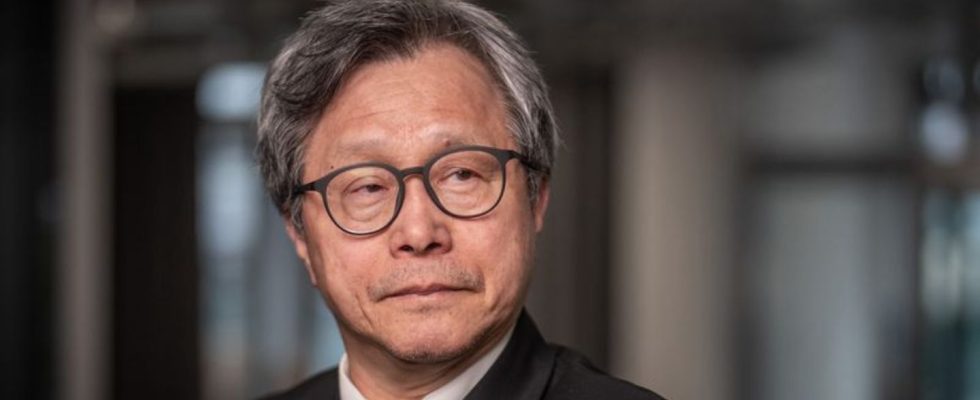The Chinese threats against Taiwan will certainly be a topic on the Chancellor’s upcoming trip to China. The democratic island republic makes it clear in advance what it expects from Scholz.
Taiwan expects Chancellor Olaf Scholz (SPD) to give a clear warning against the use of military force against the island republic during his visit to China. Taiwan’s representative in Germany, Jhy-Wey Shieh, acknowledged in an interview with the German Press Agency that Scholz had already sent clear words to the Chinese leadership during his last visit to China in November 2022.
The threats against Taiwan have increased since then. “Maybe the Chinese didn’t really understand the shot back then.” Therefore, it “wouldn’t be bad if Mr. Scholz would say that again clearly in plain language.”
Three day trip starts tomorrow
Scholz is traveling to China for three days on Saturday. Among others, he will meet President Xi Jinping there. A business delegation accompanies the Chancellor. Ministers Cem Özdemir (Agriculture, Greens), Volker Wissing (Transport, FDP) and Steffi Lemke (Environment, Greens) will also be present.
Taiwan has had an independent government since 1949, but the communist People’s Republic of China considers the democratic island of 23 million people to be part of its territory and rejects any form of official diplomatic contacts between Taiwan and other countries. Since the Russian attack on Ukraine, fears have been growing that China could annex Taiwan. The Chinese leadership has repeatedly threatened to conquer the island.
Shieh pointed out that an invasion would also very specifically affect the interests of Germany and the EU. Since the German and European economies are heavily dependent on semiconductors from Taiwan, China could then use this as an “economic, technological weapon”. Shieh encouraged Scholz to continue the course of reducing economic dependence on China.
Shieh wants military presence
He also wanted Germany, like the USA, Great Britain and France, to show a military presence in the strait between Taiwan and China. In May, another Bundeswehr frigate and a supply ship are scheduled to set off for the Pacific to underline German interest in the region with its important trade routes.
There was already a comparable mission from August 2021 to February 2022. The frigate “Bayern” took part in maneuvers with allies, but avoided Taiwan. That was “disappointing,” said Shieh. It would be a “sign” to China if things were different for the upcoming mission.
Shieh also hopes for closer cooperation with Taiwan from Germany. “Germany has a strategy towards China, but Germany still has an allergy towards Taiwan,” he said. Among other things, the representative hopes for further ministerial visits to the island. He could imagine that Justice Minister Marco Buschmann (FDP), Transport Minister Volker Wissing (FDP) or Economics Minister Robert Habeck (Greens) would come to Taiwan.
Last year, Education Minister Bettina Stark-Watzinger was the first member of the federal government to visit the capital Taipei in more than 25 years. The leadership in Beijing reacted angrily.
The Greens and the Union are calling on Scholz to speak plainly in China
Foreign politicians from the Greens and the CDU/CSU have also called on Scholz to confront the Chinese government with critical issues. The “increasingly violent threats against Taiwan, the aggression in the South China Sea or the serious human rights violations against the Uyghurs” must be addressed clearly and critically, said Green Party deputy Agnieszka Brugger to the “Tagesspiegel”. All of this is in “clear contradiction to China’s responsibility as a member of the United Nations Security Council.”
The CDU foreign politician Roderich Kiesewetter said it would be desirable if Scholz “also addressed the increasing cyber attacks from China against German companies, espionage and sabotage by China in Germany and Europe, the violations of international law in the Indo-Pacific, human rights violations against minorities in China, the massive support for the Russian war of aggression and the obvious massive military build-up”.
Scholz’s approach and thus his trip contradict the necessary strategic change towards China, which is increasingly making military and economic preparations for war. If Germany continues to “stick to appeasement and pursue the false narrative of “change through trade,” dependencies and vulnerabilities will only increase.”
Second trip to China for Scholz as Chancellor
The Green MEP Reinhard Bütikofer also called for clear words from the Chancellor about China’s role in the Ukraine war. Scholz should “make it clear to Chinese head of state Xi Jinping that it cannot be without consequences for our relations with China if Beijing takes Russia’s side and thus goes against central European security interests,” Bütikofer told the “Tagesspiegel”.
It is the Chancellor’s second trip to China since taking office in December 2021 – and one of his longest trips ever as head of government. Scholz will be in China for three full days and will visit three metropolises: Chongqing, Shanghai and Beijing. Among other things, it will be about economic relations with the world’s second largest economy – but also about Chinese threats against Taiwan, the war in Ukraine and human rights issues.
The core of the China strategy, which the traffic light coalition decided on last summer, is that the federal government wants to reduce economic dependence on China, but does not want to decouple itself from the country. China is still Germany’s most important trading partner. Last year, however, imports from China fell by 19.2 percent and exports fell by 8.8 percent.

